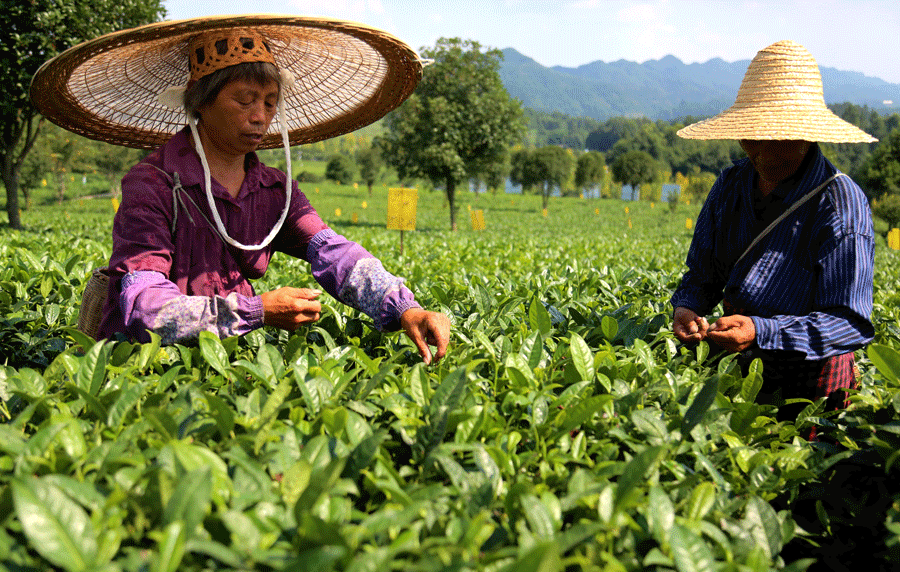Tea cultivation brews rich lives for villagers


Future plans
Hetaoba, which has earned the name the "No 1 village as an ecological tea base in West China", is just one example of Meitan's successful efforts to improve local people's livelihoods and drive economic development via tea cultivation.
More than 40,000 hectares of tea bushes have been planted in Meitan, making it the biggest tea-producing county in Guizhou and the second-largest in China.
The tea industry has become the most important part of the county's rural economy, according to Wei Zaiping, Party secretary of Meitan.
As a green industry, tea cultivation is being further promoted by the county government as the region becomes actively integrated into the Yangtze River Economic Belt, which comprises Guizhou and 10 other provinces and municipalities.
President Xi Jinping has said that the belt is a key national development strategy and places great emphasis on "green development" and "ecological priorities".
Chen said: "Tea planting has reached a considerable scale in our village. It has grown into an integrated industry chain, such as farm management, seedlings, processing and marketing, from merely growing tea in the past. We are now thinking about how to further enhance the economic benefits on the basis of putting the environment first."
He added that Hetaoba will continue to play a pioneering role in the tea industry, especially in boosting the development of tea tourism.
Li, from Sipinjun, has started looking to the future and is directing his business toward "green and healthy" activities as well as production. He believes tea tourism, especially health tourism, will become a trend.
"People care more and more about health and quality of life, so it will be an opportunity for us," Li said, adding that environmentally beneficial tea cultivation, the beautiful tea fields and the clean environment will all work to Hetaoba's advantage in the future.


















